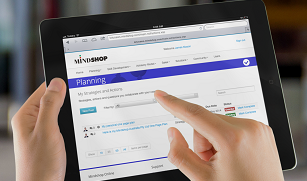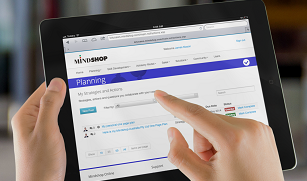Traditional Executive Education is in trouble according to Harvard Business Review (March-April 2019) in a Spotlight feature on the Future of Leadership Development written by Mihnea Moldoveanu of the Rotman School of Management and Das Narayandas who is a professor at the Harvard Business School.
Of course there are many pieces of academic work that introduce new concepts into the leadership development space. However what had me excited was the extent to which we have been delivering the "new way" of leadership development that the writers discussed in some detail.
Fundamentally, they identify a series of challenges with traditional methods of leadership development, these include:
- Traditional leadership development programs do not prepare executives for the challenges they face today and tomorrow
- They do not develop interpretive, affective and perceptual skills - skills that are seriously underplayed
- Traditional executive leadership development is too exclusive, episodic and expensive to achieve life long learning goals
- They do not provide programs that can be immediately translated into better business results
- The organisations that pay for leadership development are arguably benefiting less than the individual learners
- Lessons learned are rarely applied in the real world.
In the article they also produce a table "The Landscape of Providers" in which they outline the advantages and constraints of different types of providers. These include business schools with open programs, business schools with customised programs, strategic and human resource consultancies, corporate universities and remote personalised learning platforms such as LinkedIn Learning.
They discuss at length the rise of the personal learning cloud (PLC) and identify four important characteristics:
- Learning is personalised, which means that individuals can pursue development that is right for them, their business challenges and which will be delivered when they need it
- Learning has a social context, which means that the best learning happens when people communicate, collaborate, distribute and redistribute their learning among each other. The PLC enables this to happen in an automated fashion
- Learning is delivered in context, which is just another way of saying that leaders are learning skills when they need them for the challenges that they face in their current role
- Learning results can be tracked and authenticated. While the early naysayers of online learning suggested the end of authentication, most modern platforms include specific skills and capabilities certification, often unbundling the learning into discrete components stop.
They go on to discuss the fact that the PLC is usually a significantly less expensive alternative, is easier to utilise an ongoing fashion, and more importantly provides important motivational context for leadership development because the coursework allows the individual to apply learning immediately to the challenges faced in the role for the benefit of both themselves and their organisation.
Why was I so excited about this? In simple terms, we have been delivering Leadership Development in this way for a number of years.
As accredited facilitators from Mindshop International, we advocate a blended learning solution. The mechanics are simply that we engage in participatory learning with business leaders in which we will typically:
- Take time to understand the challenges facing both the business and the individual learners
- Over the course of a typical 12 month program map out a series of 4 to 8 workshops in which we will introduce problem-solving solutions based on contemporary thought leadership. These are selected based on specifically supporting the challenges of the organisation
- Undertake face-to-face coaching with individual leaders, helping them solve their particular challenges while aligning their learning with organisational needs
- Provide access to Mindshop Online which contains bite-size learning in the form of over 200 problem-solving and development tools, all of which are supported by high-definition video and "how to" instructions
- Use Mindshop Online to allow the individual learner to speed up or slow down their learning experience as required while never losing track of where they are in the process
- Provice 24/7 access to Mindshop Online from desktop, tablet or smart phone

- Provide the socialisation that the HBR article refers to by allowing learners to buddy up, secure direct, on demand feedback from their coach and access the learning, skills and intelligence of thousands of business users online via a community portal
- Allow for access to a range of online training courses, and even the capacity to quickly create short courses in the same format in response to specific needs
it's just good to know that as far as HBR is concerned, we are ahead of the leadership development game, support the talent retention value add it provides to our Executive Search practice and welcome the opportunity to discuss our solutions with any business leaders or Chief Learning Officers.
You can find a little more information at https://www.1stexecutive.com.au/organisational-development/ where you can also book a demonstration or even complete a couple of our online diagnostics to help you begin the journey.



.jpg)

.png?width=208&height=97&name=SpFx_Affiliate_logo_large-1%20(2).png)